All the Answers
Well-known member
Following the siege of the Argentine embassy, the Government will push for the expulsion of the Maduro regime from regional forums - Infobae

Source:
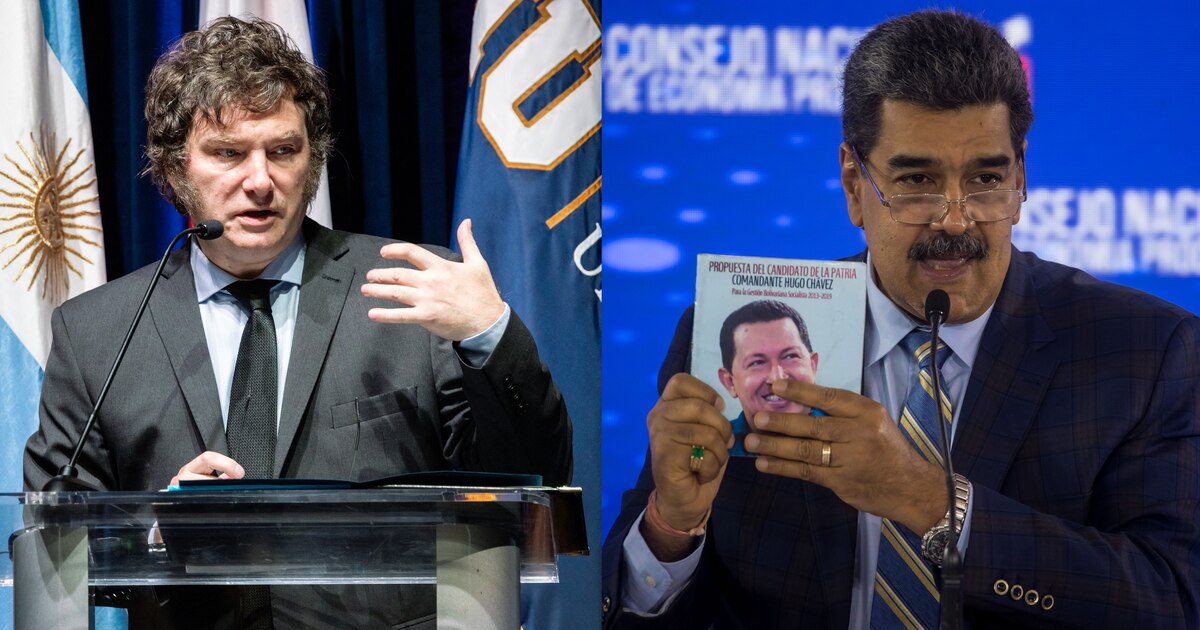
Tras el asedio a la embajada argentina, el Gobierno impulsará la expulsión del régimen de Maduro de los foros de la región
Argentina ejerce presión en la Celac y el Consenso de Brasil para aislar a Venezuela. Impulsan una “cláusula democrática” que debatirá a finales de septiembre los países de América del Sur. Milei y Mondino llevarán el tema a la reunión de la Asamblea General de la ONU
Argentina is putting pressure on Celac and the Brazilian Consensus to isolate Venezuela. They are pushing for a “democratic clause” that South American countries will debate at the end of September. Milei and Mondino will bring the issue to the UN General Assembly meeting.
By Robertino Sanchez Flecha
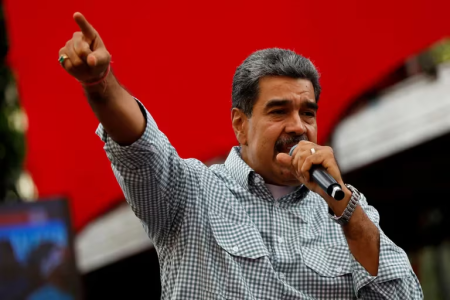
Dictator Maduro maintained a siege at the Argentine Embassy
The Government is preparing a diplomatic offensive to isolate Venezuela from the integration and cooperation organizations of the region. With the approval of Javier Milei , Diana Mondino , Minister of Foreign Affairs, is working with her team to promote a series of instruments and actions aimed at generating pressure on the regime of Nicolás Maduro . It is a position that Argentina raised at the last meeting of the Community of Latin American and Caribbean States (CELAC) and that they will take to a summit of the Brasilia Consensus that will take place in the next few days. The Casa Rosada does not want to lose the initiative against Caracas for the fraud in the presidential elections of July 28.
The weekend was marked by the siege of the Argentine embassy in Caracas by Nicolás Maduro's regime, which has been under Brazilian protection since August . Six leaders of the opposition leader María Corina Machado 's space are living there as asylum seekers . Chavismo pressured the Planalto so that its representatives would abandon the diplomatic headquarters that they have under custody. The operation was unsuccessful and, as Infobae was able to find out , the harassment diminished when it became known that the former presidential candidate Edmundo González Urrutia had gone into exile in Spain.
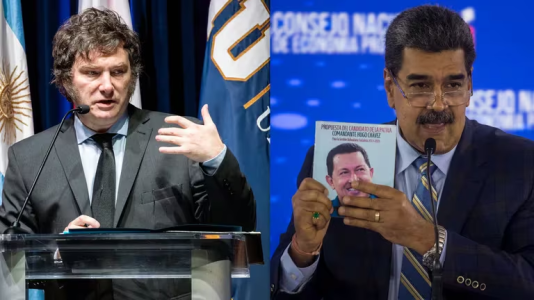
Following the siege of the Argentine embassy in Caracas, the government is seeking to expel the Maduro regime from regional forums. EFE/ Cristóbal Herrera-Ulashkevich / Miguel Gutiérrez
On Saturday night, a group of patrols from the Sebin , the security force of the Bolivarian regime, surrounded the residence of the Argentine diplomatic headquarters, in the chic Las Mercedes neighborhood of Caracas. It was a decision by Maduro after Balcarce 50 urged the prosecutor of the International Criminal Court (ICC) to order the arrest of the Chavista leader and the leaders of his government.
Maduro’s siege of the Argentine embassy began with the decision to revoke the “approval” granted to Brasilia to represent the interests of Argentina and its nationals in Venezuelan territory. This gesture was immediately and widely condemned , both in the region and in the rest of the world. Communications came from Chile, Uruguay, Paraguay, Spain. Even Brazil did the same, demanding that the Vienna Convention be respected. “ The Brazilian government was surprised by the communication ,” responded the Planalto, warning that it will protect “Argentine interests” until the Argentine government indicates otherwise.
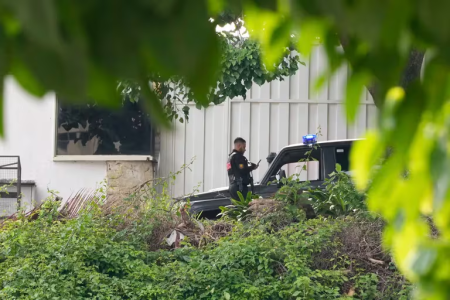
Venezuelan police besieged the Argentine embassy in Caracas, Venezuela, on Saturday. (AP Photo/Ariana Cubillos)
Those close to Milei consider that what Venezuela did by expelling diplomats from Argentina, Uruguay, the Dominican Republic, Chile, Panama, Paraguay, Peru and Costa Rica is “ unprecedented ”. These are the first countries to condemn the fraud in the elections of July 28. For their part, Brazil, Mexico and Colombia, with a position close to Maduro, have not yet recognized the results of the vote count and have bowed to the pressure of the international system to demand that Caracas display the official records certifying the results.
But there is something even more serious. Venezuela not only expelled the Argentine diplomats from Caracas, but also prevented the six asylum seekers in the embassy from leaving with the national delegation. The Foreign Ministry has been asking since March that Chavismo grant safe conduct so that these Machado militants can safely withdraw to Buenos Aires (or another destination). Maduro rejects this possibility. For this reason, Mondino is promoting a kind of regional isolation of the regime.
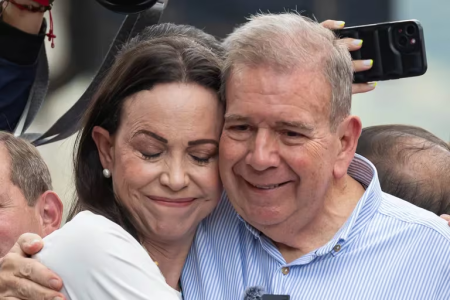
Edmundo González Urrutia, former presidential candidate for Venezuela supported by María Corina Machado, went into exile in Spain (Venezuela).EFE/ Ronald Peña R.
On August 22, the Foreign Ministry gave a harsh speech against Venezuela at a closed meeting of CELAC. The Argentine representation cited the 1954 Caracas Convention on Political Asylum in that forum, which guarantees the safe-conduct. “We reiterate our request that the Venezuelan regime provide them,” said the government statement, which this media had access to, in reference to the diplomatic instrument. In the last elections, “the hope of millions of Venezuelans who made the decision to vote for a change in peace was reduced to ashes,” it questioned later.
The peculiarity of this positioning of Argentina is that in Celac, it is customary to avoid critical references to Venezuela. The Foreign Ministry follows a similar line in the Brasilia Consensus, a space that brings together all the countries of South America in place of Unasur. Last week, Mondino instructed his team to present a “democratic clause” with the aim of expelling the Maduro regime from that space.
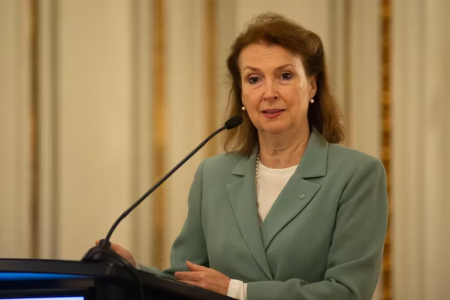
Diana Mondino, Foreign Minister (Jaime Olivos)
This proposal will be discussed at the next meeting of the Brazilian Consensus, which will be on September 20 (or before). Infobae has access to the text that the Foreign Ministry prepared to force the expulsion of Venezuela.
The complete democratic clause that Argentina is promoting in the Brazilian Consensus:
“ The countries that make up the Brasilia Consensus reaffirm their commitment to democracy, the rule of law and the republican values of government. In cases where democracy is at risk, either due to a breakdown or a serious threat of a breakdown of the constitutional order or the rule of law, or due to any situation that puts at risk the legitimate exercise of power and the validity of democratic values and principles, the Rotating Presidency will establish a Mediation Commission also made up of the other States of the Brasilia Consensus that wish to participate, in order to offer their good offices. This Commission will submit a report within 30 days of its establishment and, if the evolution of events indicates that the efforts made are not allowing the safeguarding of democracy, the State will be automatically suspended, and will not be able to participate in any of the meetings of the Brasilia Consensus .”
The move implies a kind of ambush against Caracas. If Venezuela opposes the democratic clause, it will be an implicit way of accepting fraud. “The proposal we are making is like a dead end,” a diplomat with an office in the San Martín Palace explained to Infobae. The government has the support of Paraguay, Uruguay, Chile and Peru. Meanwhile, Brazil thanked the proposal and responded that it “will study it.” It is not ruled out that after the events of the weekend, Itamaraty will take a step to exert more pressure on Maduro. Meanwhile, there are doubts about what position Bolivia will take in this regard.
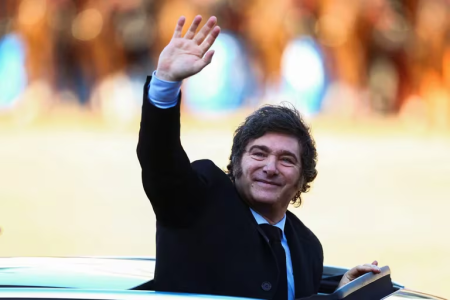
President Javier Milei will speak at the UN at the end of September. REUTERS/Matias Baglietto
At the same time, Mondino is planning a diplomatic offensive against Venezuela within the framework of the United Nations (UN) General Assembly, which will take place at the end of the month in New York, and where Javier Milei is scheduled to speak. They will seek to reinforce the condemnation of Maduro and demand the expulsion of the regime from all relevant forums of the international system.
It should be noted that the foreign minister will embark on a long tour of Europe tomorrow, which will include diplomatic missions in Switzerland and Austria, before returning to Buenos Aires, where she will stay for just one day and then fly to New York for the UN summit.

